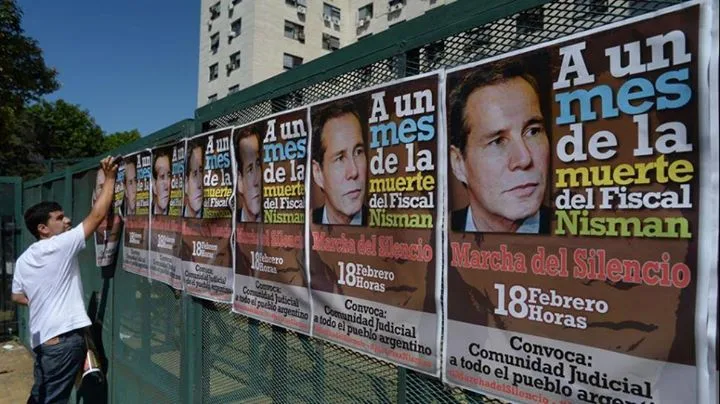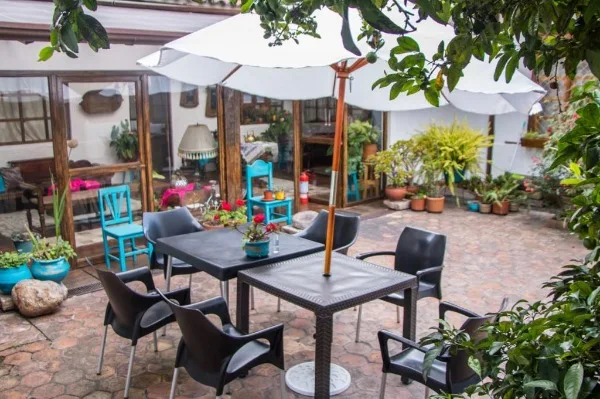Social unrest growing in several Latin American countries
By World Crunch editorial board
An economic slowdown in Latin America is coinciding with increasing social unease, a spate of corruption scandals, sharp dro ps in the popularity of several presidents and a more complicated panorama overall for regional governance.
ps in the popularity of several presidents and a more complicated panorama overall for regional governance.
Arguably the most troubled country at the moment is Venezuela, which is witnessing more polarization, more repression and the degradation of its institutions. President Nicolás Maduro has in recent weeks intensified the persecution of political opponents, denouncing (yet) another attempted coup and arresting the mayor of Caracas Antonio Ledezma.
The Venezuelan leader has wound up in a face-to-face standoff with Washington, and in a bizarre twist, Maduro even decided to compare himself to Joseph Stalin.
In Argentina, President Cristina Fernández de Kirchner reacted strongly to the Feb. 18 “march of silence” — a mass homage to the prosecutor and government critic Alberto Nisman, recently found dead in his home. She is denouncing the creation of a “judicial party” she accuses of planning a legal and media attack, intended to undermine her government.
The situation is equally complex in Mexico, where President Enrique Peña Nieto wasted the “Mexican Moment” that followed his coming to office in late 2012 and is now desperately trying to get his reforms agenda back on track. By doing so he hopes to boost his position ahead of mid-term parliamentary elections, set for July 7, that promise to impact, one way or another, the final three years of his presidency.
In Brazil, in the meantime, a stagnant economy combined with corruption scandals involving the partially state-owned energy giant Petrobras are torpedoing the approval numbers of President Dilma Rousseff, who was reelected just five months ago.
On the other side of the continent, in the Andean region, Peruvian President Ollanta Humala is struggling with popularity problems as well. He is also being painted into a corner by the legislature, which used the threat of a parliamentary vote of censure to force a major Cabinet shuffle.
There are even problems in Chile, often hailed as the region’s “model” country, where President Michelle Bachelet finds herself in a vigorous confrontation with opposition conservatives as she tries to push through an ambitious reforms program amid fallout from various corruption and influence-peddling scandals, including one that involves her own son.
And in Central America, acute poverty, fragile state institutions, high corruption and crime levels and now, penetration by drug cartels, have created a particularly alarming situation, especially in the so-called northern triangle (Guatemala, El Salvador, Honduras).
KEY ELECTIONS COMING UP
Latin America is also witnessing a notable rise in public frustration over corruption, nepotism, impunity and bad public services. Scandals are popping up just about everywhere, either involving national leaders or people related to them (Chile, Argentina, Mexico and Peru), former leaders (Panama) or institutions of great importance (Petrobras).
Is what we’re seeing here the end of a cycle? Will these happenings prompt a change in the region’s political and electoral scenario?
In most of the dozen presidential elections that took place in Latin America between 2013 and 2014, incumbent governments managed to retain power even though in a number of cases, especially in South America, changing and less favorable conditions forced them to compete in runoffs.
It is increasingly clear, nevertheless, that a combination of factors (slowed growth, less poverty reduction, more social tensions, anger over increasing corruption and declining support for leaders) will make government much more complicated in several states.
I wonder: Will regional democratic institutions be able to adapt to this new and complex scenario? Do regional democracies have the political leadership and institutional buffers needed to face (with less public revenue due to the end of the commodities boom) more complex governing conditions and situations of greater social conflict?
Of the elections scheduled for this year, two are particularly relevant as indicators of a possible change of cycle. One is the still unscheduled legislative election in Venezuela, where the opposition (assuming it can unite) is in an excellent position to do well in spite of increasing government repression and lack of guarantees that the election will be entirely free and fair.
The other is the presidential election in Argentina, which will not only end the Kirchner era but could also push Peronism — the current government’s highly resilient mother ideology — out of power. Will the opposition in both states manage to position themselves as real and credible alternatives to the ruling parties? In coming months, we should keep our eyes on these, the two mothers of all regional elections.
Credit: World Crunch, http://www.worldcrunch.com



















